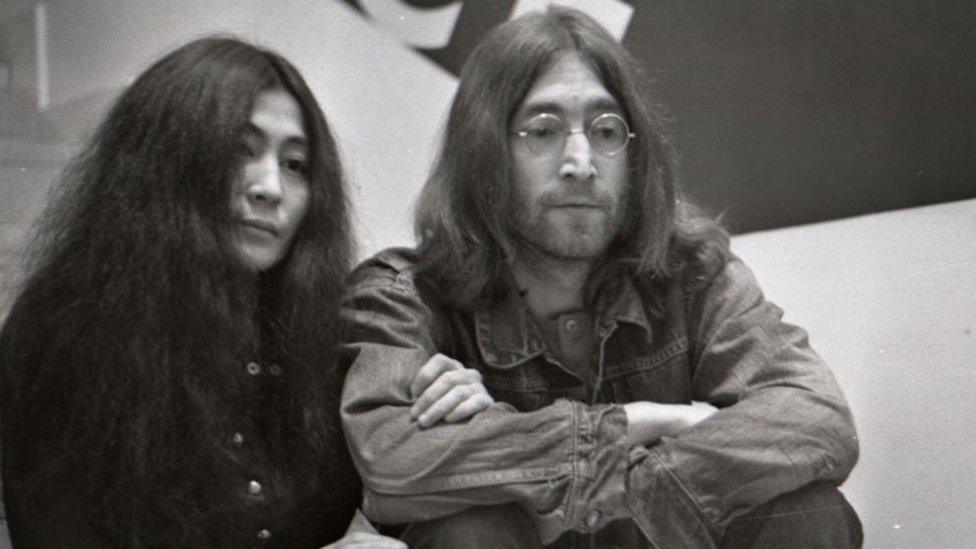John Lennon: I was there the day he died
- Published
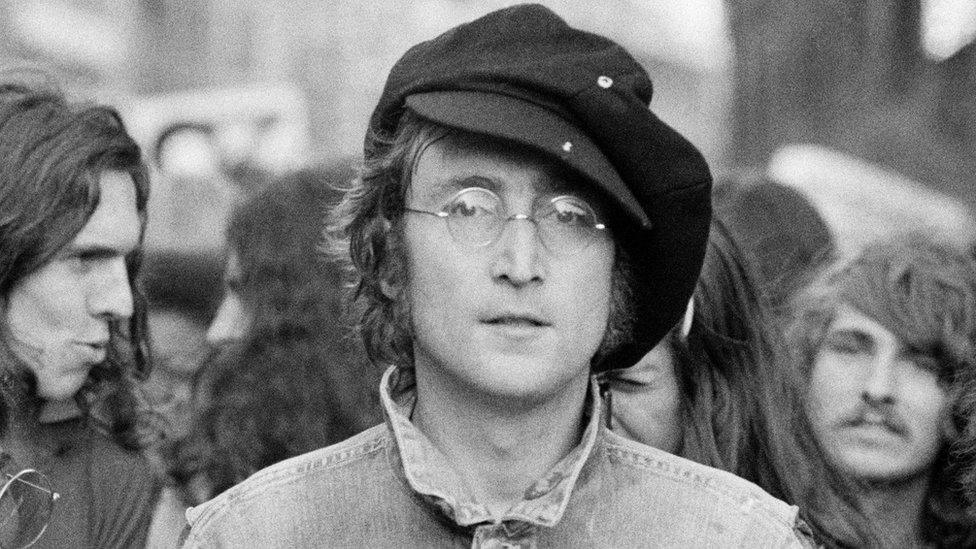
Forty years ago, on 8 December 1980, the former Beatle John Lennon was shot dead as he returned to his home at the Dakota apartment building in New York. The BBC's Tom Brook was the first British journalist to report live from the scene. Here he recounts how Lennon's death has haunted him ever since.
In New York as I go about my daily routines I am constantly reminded of John Lennon, of both his life - and death.
I now live just four blocks from the Dakota - I go past the building virtually every day and whenever I go to my gym on West 63rd Street it is part of a complex which also houses a hotel - the very hotel Lennon's killer, Mark David Chapman, stayed in on his first night in New York.
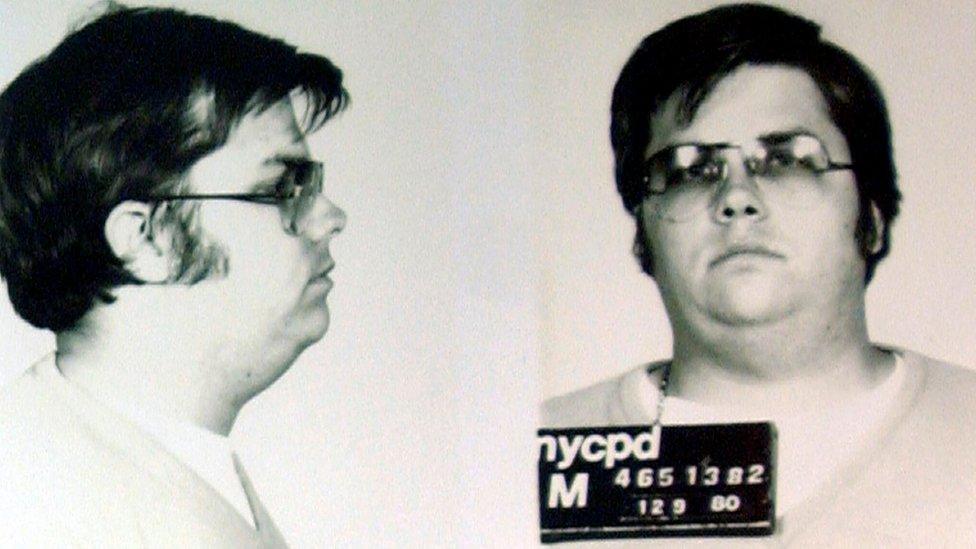
Mark David Chapman shot John Lennon as he returned to his Dakota apartment
Lennon also continues to define my career. I have been a broadcast journalist for more than 40 years. In that time I have filed more than 3,000 stories for BBC outlets and have interviewed most of the big names in the movie industry.
But all people want to know about when they meet me is what it was like to cover John Lennon's death.
Allow X content?
This article contains content provided by X. We ask for your permission before anything is loaded, as they may be using cookies and other technologies. You may want to read X’s cookie policy, external and privacy policy, external before accepting. To view this content choose ‘accept and continue’.

Well, I have to admit it was a huge story but the logistics of the reporting were actually quite simple. I commandeered a public phone booth in sight of the Dakota, fielding questions from BBC Radio Four Today presenter Brian Redhead, among others, in London, and providing the latest developments.
When I wasn't doing that I was interviewing some of the hundreds of Lennon fans who were congregating in the street.
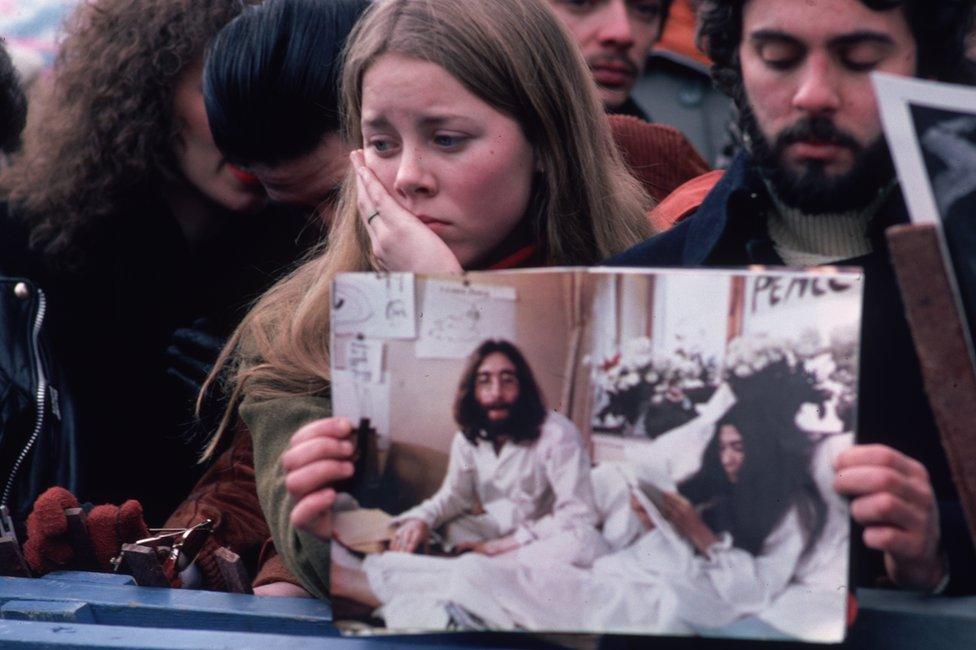
Mourning fans gathered in Central Park
Everyone around me was crying, some of the fans were hysterical. I was a big Lennon follower myself.
The other day I looked back at the photograph on my first official BBC ID card from that era - it's a scary sight and I'm amazed the corporation ever gave me a job!
But I definitely looked like a John Lennon fan. So, yes, I was emotionally pained that night too but I managed not to choke up on air.
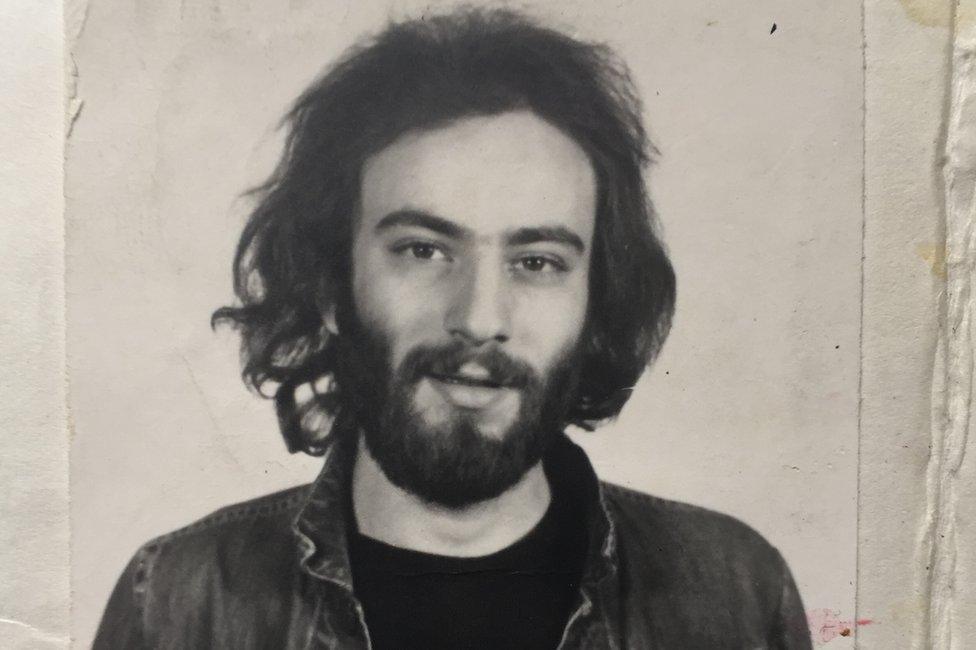
How Tom looked 40 years ago
People always ask me to describe what it was like at the Dakota in the immediate aftermath of his death.
I will never forget one young woman who said: "I feel like I've just been punched in the stomach." I think her words summed it up perfectly.
Two years after the former Beatle died I returned to the Dakota to interview Yoko Ono - she had just begun to comment on Lennon's death - she still spoke of him in the present tense.
She told me: "He's still alive, he's still with us, his spirit will go on, you can't kill a person that easily."
That is perhaps what is most noteworthy 40 years after Lennon died - just how much his spirit is still alive in terms of the millions of young people who are now migrating to his music.
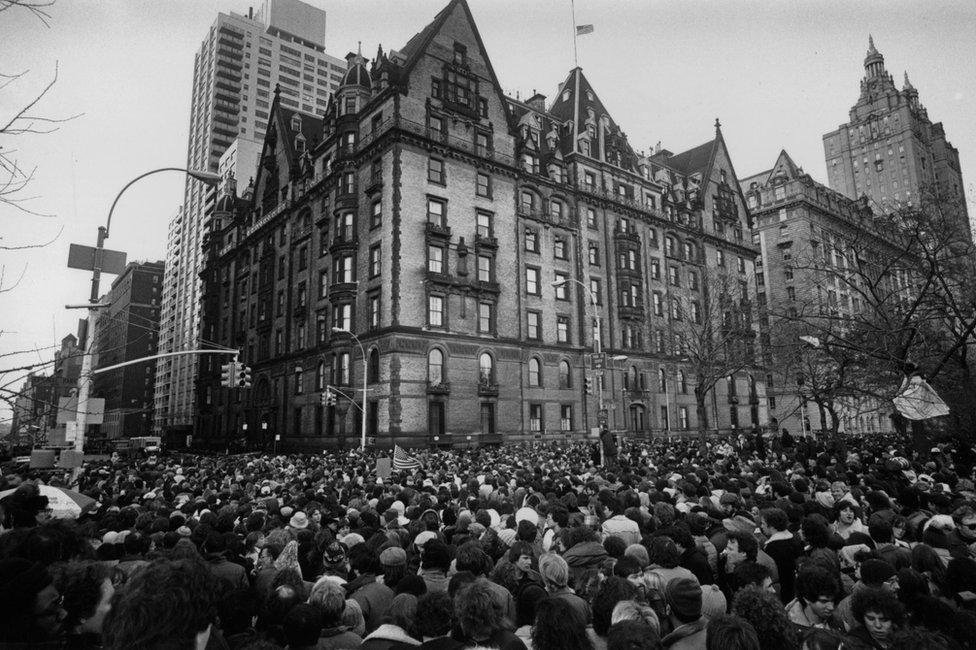
Fans gather outside the building where John Lennon had lived
In the run up to this anniversary I have spent the past few days speaking to some of them.
They tell me they are drawn to Lennon's music, his lyrics and his particular brand of idealistic pacifism, which they think brings some comfort in these pandemic times.
But to be objective, I know not everything in relation to Lennon was wondrous. He could be mean and nasty - and he admitted that he abused women.
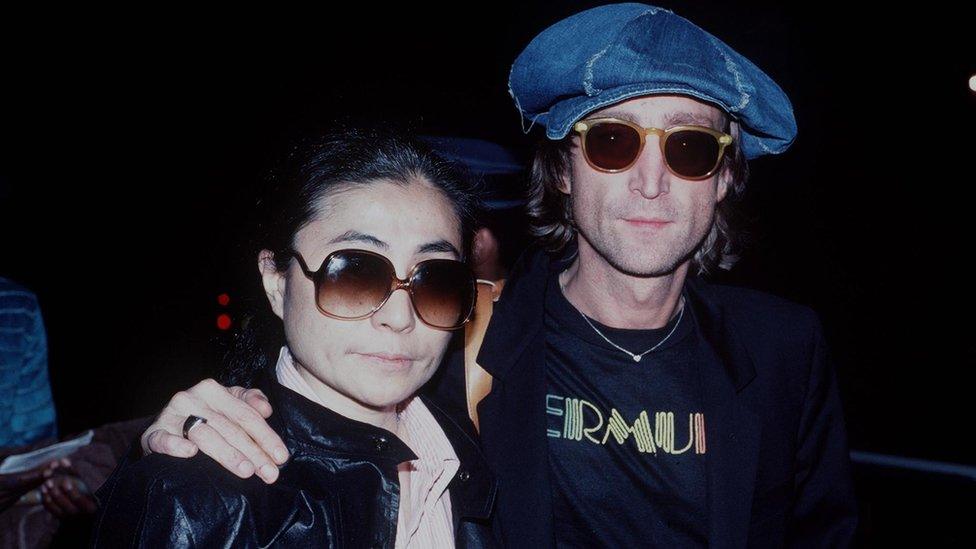
John Lennon and Yoko Ono not long before his death
None of this has really affected his legacy - if anything his stature as a musician has grown since he died.
I think what I liked most about Lennon was that he had an authentic voice. Not just musically.
He did and said some controversial things but he he wasn't a fake - he was always his own person.
He was one of the most significant figures in 20th Century pop culture history, a true British original and I find myself four decades after he died still fascinated by him.
Talking Movies is broadcast on BBC World News and the BBC's News Channel.

Follow us on Facebook, external or on Twitter @BBCNewsEnts, external. If you have a story suggestion email entertainment.news@bbc.co.uk, external.
Related topics
- Published22 September 2020
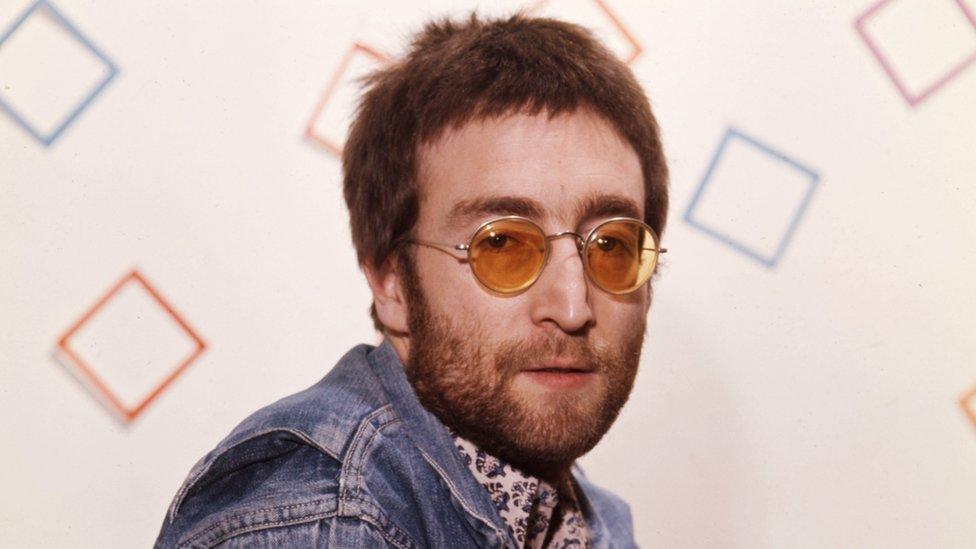
- Published14 December 2019
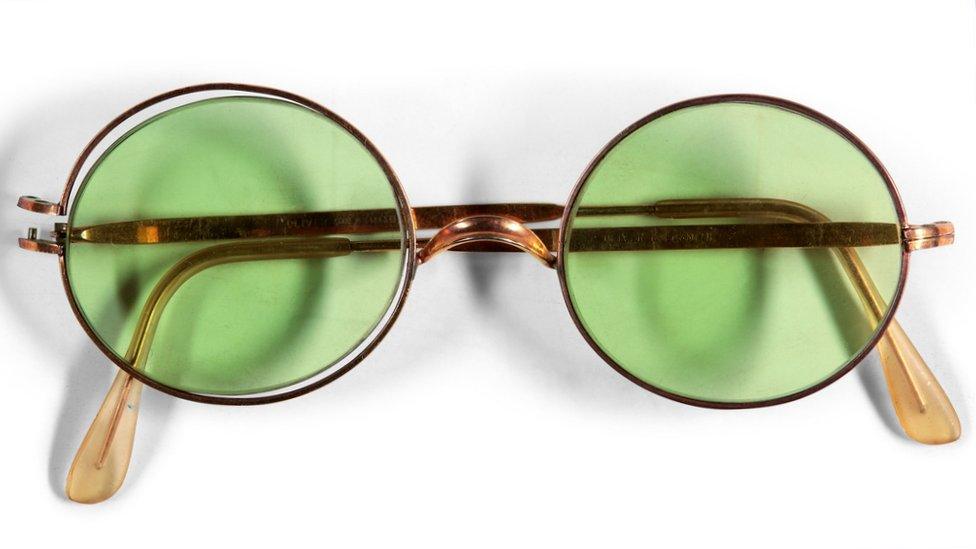
- Published2 March 2019
